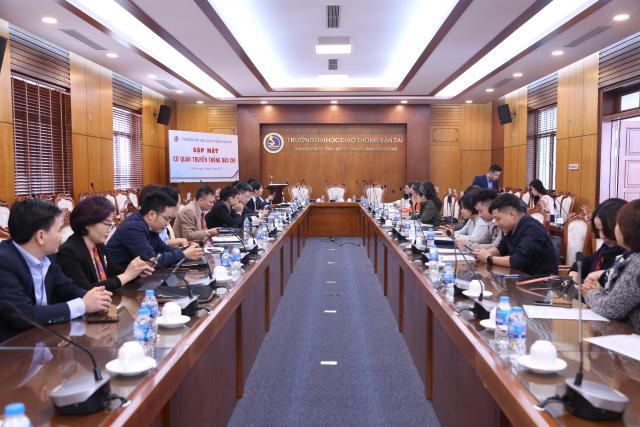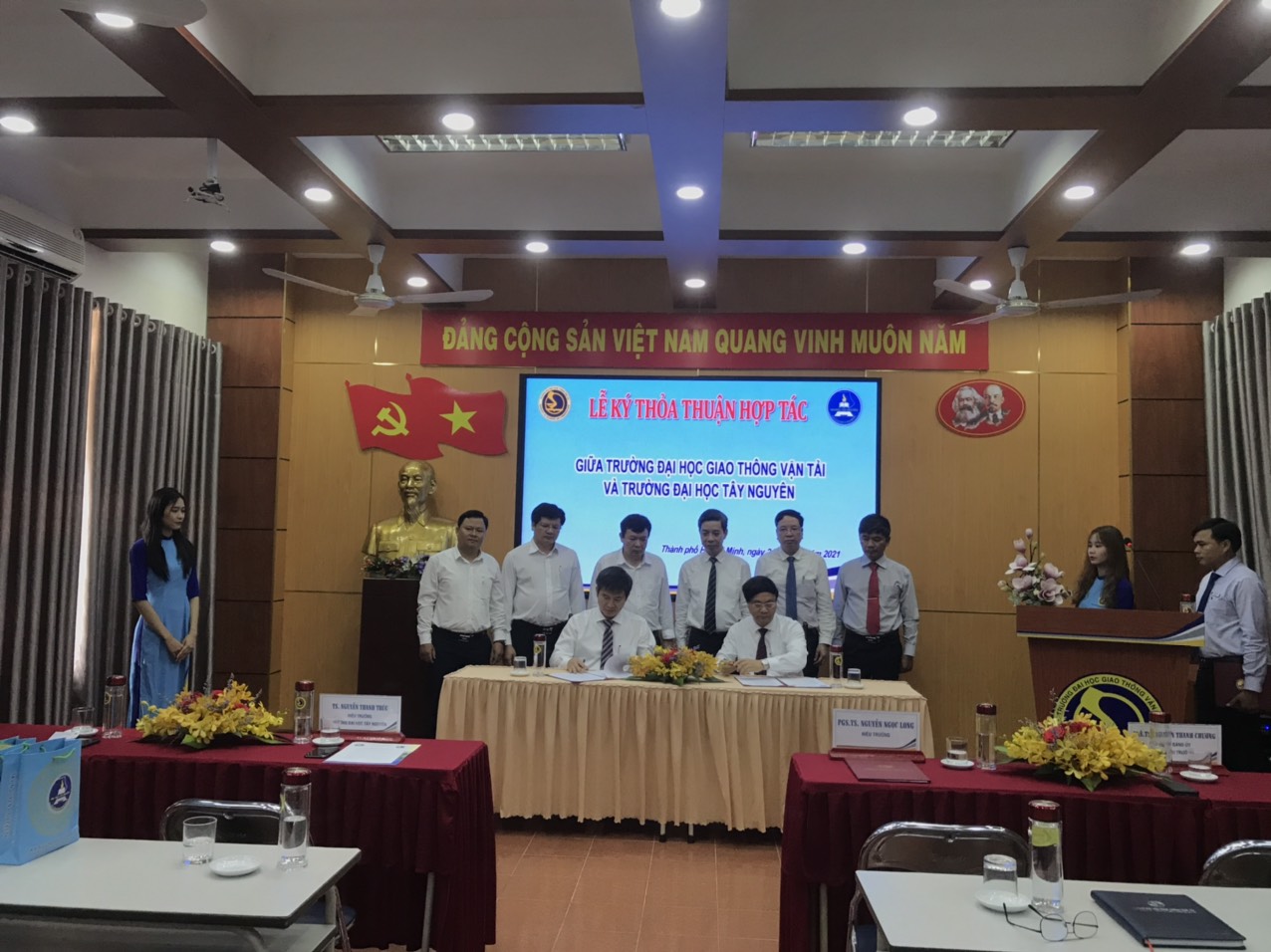THÔNG TIN TÓM TẮT VỀ NHỮNG ĐÓNG GÓP MỚI
CỦA LUẬN ÁN TIẾN SĨ
Tên luận án: Nghiên cứu ứng xử cơ - nhiệt của kết cấu cầu sử dụng bê tông có phụ gia khoáng silica fume.
Ngành: Kỹ thuật xây dựng Công trình giao thông.
Mã số: 9580205
Nghiên cứu sinh: Trần Đức Tâm
Họ và tên cán bộ hướng dẫn:
1. PGS.TS. Đỗ Anh Tú - Trường Đại học Giao thông Vận tải.
2. TS. Hoàng Việt Hải - Trường Đại học Giao thông Vận tải.
Cơ sở đào tạo: Trường Đại học Giao thông Vận tải
TÓM TẮT ĐÓNG GÓP MỚI CỦA LUẬN ÁN
- Luận án đã xác định được nhiệt thủy hóa cho 4 hỗn hợp SF bằng thiết bị thí nghiệm nhiệt lượng đoạn nhiệt: Hỗn hợp chứa 0% SF (SF00), hỗn hợp chứa 5% SF (SF05), hỗn hợp chứa 10% SF (SF10) và hỗn hợp chứa 15% SF (SF15). Độ tăng nhiệt độ đoạn nhiệt của các hỗn hợp lần lượt là 56,1; 54,9; 53,2; và 52,0°C ghi nhận được tại các mẫu SF00, SF05, SF10 và SF15. Sự chênh lệch nhiệt độ giữa các mẫu là không lớn, chỉ tối đa là 4,1°C.
- Bộ tham số nhiệt thủy hóa quan trọng của SF, bao gồm αu, t và b đã được xác định dựa vào đường cong thực nghiệm sử dụng phương pháp bình phương nhỏ nhất. Trong đó mức độ thủy hóa cuối cùng αu tăng khi tăng hàm lượng SF thay thế xi măng. Luận án kiến nghị công thức hồi quy để xét đến ảnh hưởng của hàm lượng SF thay thế xi măng đến mức độ thủy hóa cuối cùng như sau:
trong đó: αu,0 là mức độ thủy hóa cuối cùng được xác định từ thực nghiệm của hỗn hợp SF00 chứa 100% xi măng, pSF là hàm lượng SF trên tổng khối lượng chất kết dính.
- Hệ số giãn nở nhiệt CTE của các hỗn hợp được xác định bằng thực nghiệm bằng máy Gilson HM-271F (Mỹ), theo tiêu chuẩn AASHTO 336T. CTE của các hỗn hợp BT SF có độ chênh lệch không lớn khi thay đổi hàm lượng SF, giá trị trong khoảng 8.95 – 9.93´10-6/°C. Đây là 1 trong các hệ số quan trọng về đặc tính vật lý của vật liệu BT, là một tham số quan trọng bổ sung vào bộ tham số về nhiệt của BT, phục vụ bài toán mô hình và đánh giá ứng suất nhiệt và rủi ro nứt nhiệt của BT do tác động của nội nhiệt và ngoại nhiệt đồng thời ở tuổi sớm của kết cấu.
- Khi sử dụng hỗn hợp SF00 và SF05 cho kết cấu trụ có mặt cắt 2,8 m x 3,5 m, thì hệ số h (là tỉ số giữa ứng suất nhiệt và cường độ chịu kéo khi ép chẻ theo thời gian) vượt quá 1.0 trong khoảng thời gian 48 – 90 h (2 – 4 ngày), còn trụ cầu sử dụng hỗn hợp SF10 và SF15 luôn có hệ số h < 1.0 trong suốt khoảng thời gian 7 ngày đầu sau khi đổ BT. Như vậy, SF10 và SF15 làm giảm nguy cơ nứt nhiệt so với SF00 và SF05 trong cùng điều kiện về kích thước kết cấu và nhiệt độ môi trường xung quanh. Luận án đề xuất sử dụng hỗn hợp bê tông SF có hàm lượng SF thay thế hợp lý là từ 10-15% để giảm thiểu rủi ro nứt nhiệt ở tuổi sớm.
INFORMATION OF THE NEW CONTRIBUTIONS OF THE THESIS
Name of thesis: Mechanical and thermal behavior of bridge structures using concrete incorporated with silica fume.
Major: Civil Engineering
Code No: 9580205
Name of PhD. Student: Tran Duc Tam
Names of Supervisors:
1. Assoc Prof., Dr. Do Anh Tu - University of Transport and Communications
2. Dr. Hoang Viet Hai - University of Transport and Communications
Training Institution: University of Transport and Communications
SUMMARY OF THE NEW CONTRIBUTIONS OF THE THESIS
- Heat of hydration for 4 SF mixtures was determined using an adiabatic calorimeter: A mixture containing 0% SF (SF00), a mixture containing 5% SF (SF05), a mixture containing 10% SF (SF10), and a mixture containing 15% SF (SF15). The increase in the heat distortion temperature of the mixtures is recorded as 56.1, 54.9, 53.2, and 52.0°C, respectively, for the SF00, SF05, SF10, and SF15 samples. The temperature difference between the samples is minimal, reaching a maximum of 4.1°C.
- Key hydration parameters of SF concrete, including αu, τ, and β, have been determined based on experimental curves using the least squares method. The final hydrolysis degree αu increases with the substitution of cement by SF. The dissertation proposes a regression formula to consider the influence of the SF substitution content on the final hydrolysis degree as follows:
where αu,0 is the final hydrolysis degree determined from experiments of the SF00 mixture containing 100% cement, and pSF is the SF content relative to the total binder mass.
- The coefficient of thermal expansion (CTE) of the mixtures is determined experimentally using the Gilson HM-271F machine (USA), following the AASHTO 336T standard. The CTE of SF-modified concrete mixtures shows minor variations with changing SF content, with values ranging from 8.95 to 9.93 × 10-6/°C. This is one of the important coefficients regarding the physical properties of concrete, serving as a crucial parameter added to the heat parameters for concrete, addressing thermal stress and crack risk due to the simultaneous effects of internal and external temperatures in the early age of the structure.
- When using SF00 and SF05 mixtures for a column structure with a cross-section of 2.8 m x 3.5 m, the η coefficient (the ratio of thermal stress to tensile strength under splitting over time) exceeds 1.0 during the period of 48 – 90 hours (2 – 4 days). Meanwhile, bridge columns using SF10 and SF15 mixtures consistently have η < 1.0 throughout the first 7 days after casting. Thus, SF10 and SF15 reduce the risk of thermal cracking compared to SF00 and SF05 under the same structural size and ambient temperature conditions. The dissertation recommends using concrete mixtures with SF substitution in the range of 10-15% to minimize the risk of early-age thermal cracking.


